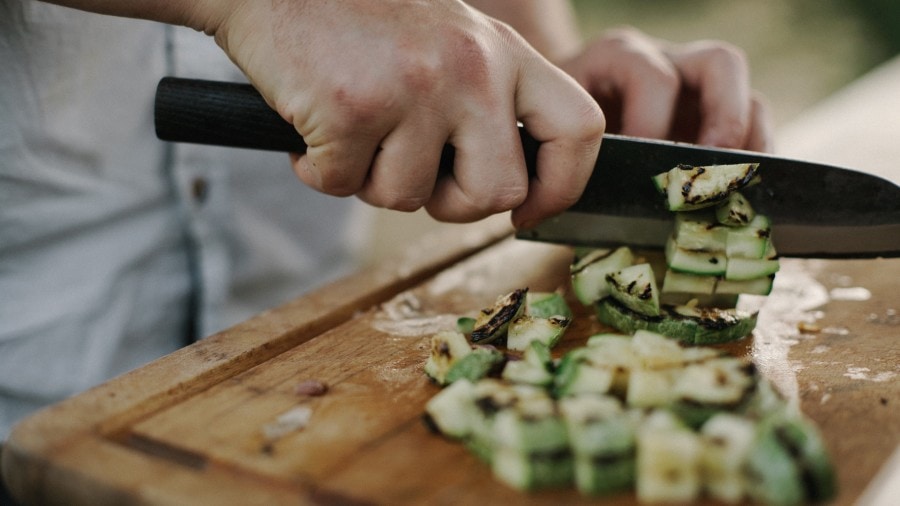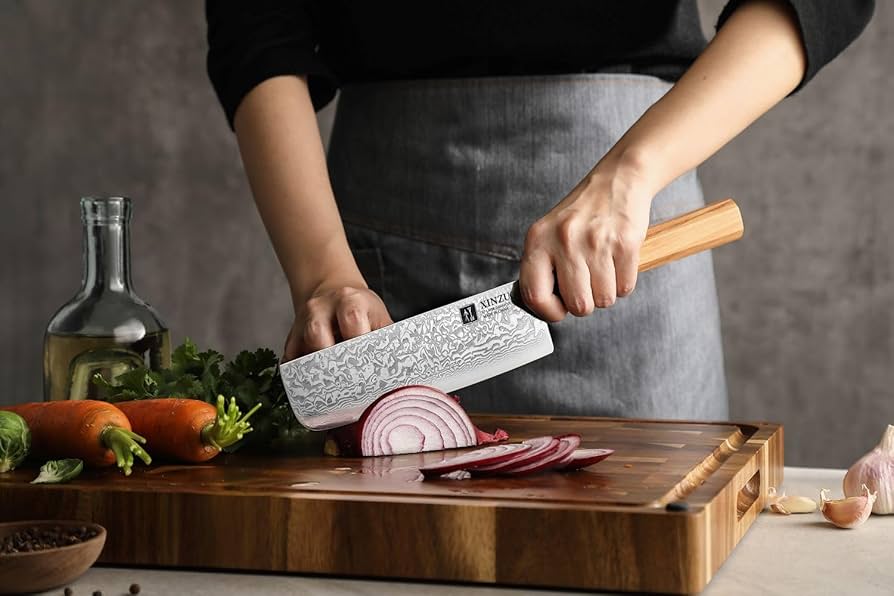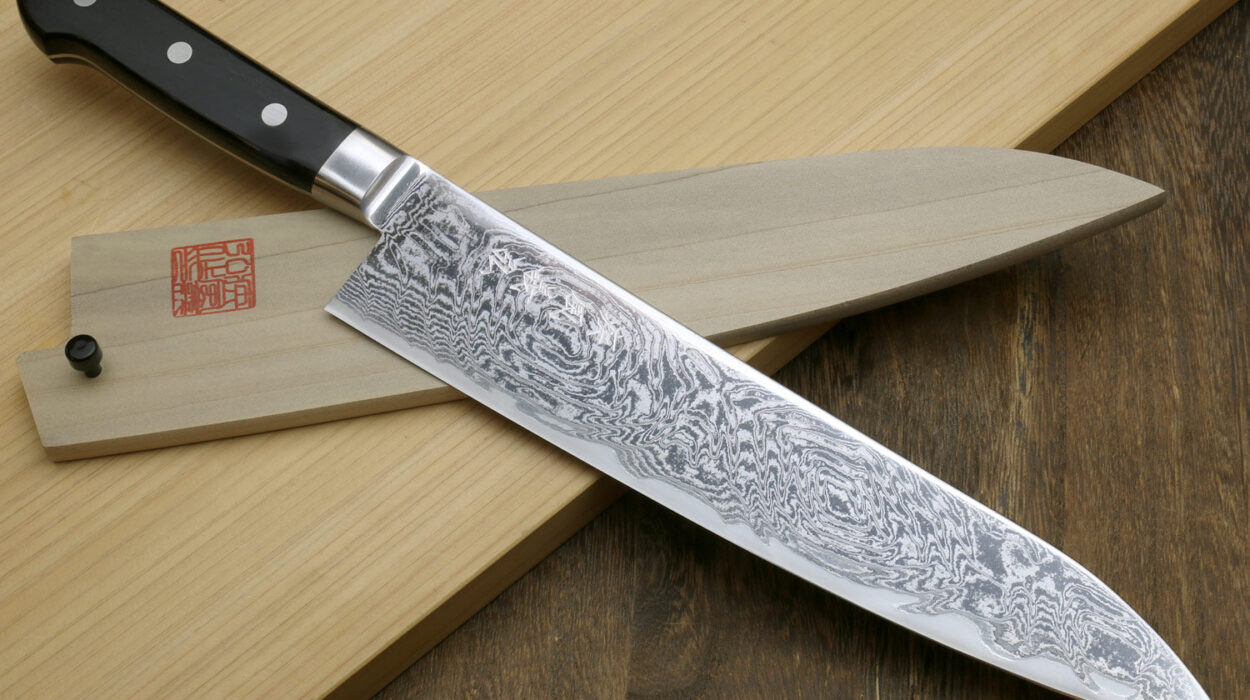When it comes to preserving the unique beauty and functionality of a Damascus knife, protecting Damascus knife finish is paramount. Whether you are an avid chef or a culinary enthusiast, understanding how to maintain this exquisite blade ensures longevity and performance.

Understanding the Beauty of Damascus Steel
Damascus steel is renowned for its distinctive patterns, which result from the forging process that combines multiple layers of steel. This creates a blade with unparalleled strength and aesthetics. However, this exquisite finish requires diligent care to retain its allure and performance.
Why Protection is Essential
Preserving the finish of your Damascus knife is crucial not only for maintaining its beauty but also for ensuring its optimal functionality. Without proper care, the blade can be subject to rust, dullness, and other forms of damage. Investing in Damascus knife care prolongs its life, allowing you to enjoy its full potential in the kitchen.
Common Threats to Damascus Knife Finish
Understanding the threats to your Damascus knife is the first step in protecting it. Common hazards include moisture, abrasive materials, and improper storage. These factors can compromise the blade’s finish and its razor-sharp edge. Therefore, awareness and preventive strategies are key.
Proper Cleaning Techniques
Cleaning your Damascus knife correctly is essential in preventing damage. Always wash the blade by hand with mild soap and warm water, ensuring that it is thoroughly dried immediately afterward. Avoid using dishwashers or harsh detergents, as they can degrade the knife’s finish.
Importance of Immediate Drying
After washing, immediate drying is crucial to avoid moisture build-up, which can lead to rust. Use a soft cloth to pat the blade dry, paying attention to intricate patterns that may trap moisture.
Maintaining the Edge
The sharpness of your Damascus knife is integral to its function. Regular honing with a honing rod can keep the edge aligned. For more intensive sharpening, consider professional services to preserve the blade while maintaining its finish.
Using a Honing Rod
A honing rod realigns the blade’s edge, maintaining sharpness between uses. This simple tool can significantly extend the time between more intensive sharpening sessions, preserving the knife’s finish.
Proper Storage Solutions
Storing your Damascus knife properly is as important as cleaning it. Select from magnetic strips, knife blocks, or protective sheaths to keep the blade away from moisture and environmental damage.
Magnetic Strips vs. Knife Blocks
Both magnetic strips and knife blocks offer effective solutions for kitchen storage. Magnetic strips offer visibility and ventilation, whereas knife blocks provide solid protection. Choose based on your kitchen layout and preference.
Frequent Maintenance Practices
Regularly inspect your knife for signs of wear. Applying a layer of mineral oil to the blade can provide an additional barrier against moisture and rust, enhancing the finish’s longevity.
Recognizing Signs of Damage
Stay vigilant for any discoloration, rust spots, or edge dullness. Addressing these issues promptly can prevent further damage and preserve the knife’s performance and appearance.
Professional Restoration
For those needing more intensive repairs, professional restoration services can revive a worn Damascus knife. These experts can handle refinishing, sharpening, and repairs, restoring the knife to its former glory.
When to Seek Professional Help
If your knife exhibits significant wear or you are unable to restore sharpness independently, consult a professional to ensure the highest quality restoration.
Chef quality Damascus knives and Care
For kitchen professionals, maintaining the quality of Damascus knives not only enhances culinary performance but also prolongs the lifespan of these valuable tools. Utilizing proper care methods ensures ongoing excellence in daily kitchen use.
Importance in Culinary Settings
Professional chefs rely on the exceptional sharpness and beauty of Damascus knives. To uphold this, consistent maintenance routines are crucial, reflecting the knife’s importance in culinary artistry.

FAQs About Protecting Damascus Knife Finish
How often should I oil my Damascus knife?
It is recommended to oil your Damascus knife every few weeks, especially if it is frequently used or exposed to moisture.
Are all cleaning soaps safe for Damascus knives?
No, it is best to use mild dish soap without abrasives or strong chemicals to avoid damaging the finish.
Can I leave my Damascus knife submerged in water?
No, prolonged exposure to water can encourage rust and damage the knife’s finish, so it should be avoided.
Proper care and maintenance are vital to protecting Damascus knife finish. For more on the history and craftsmanship of Damascus steel, visit Medieval Ware.
Explore more about the intricacies and history of Damascus steel hardness and find the right Damascus knife gift sets at KnivesGenius.
This article contains affiliate links. We may earn a commission at no extra cost to you.


